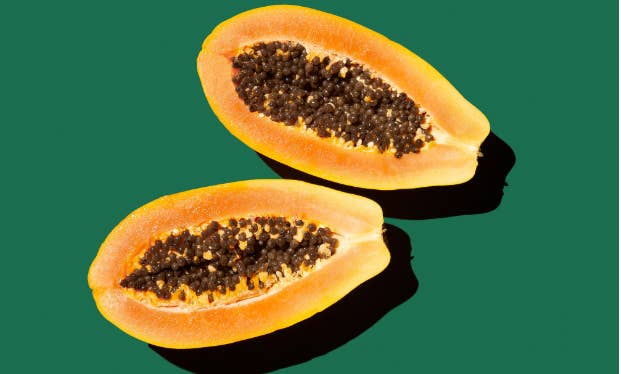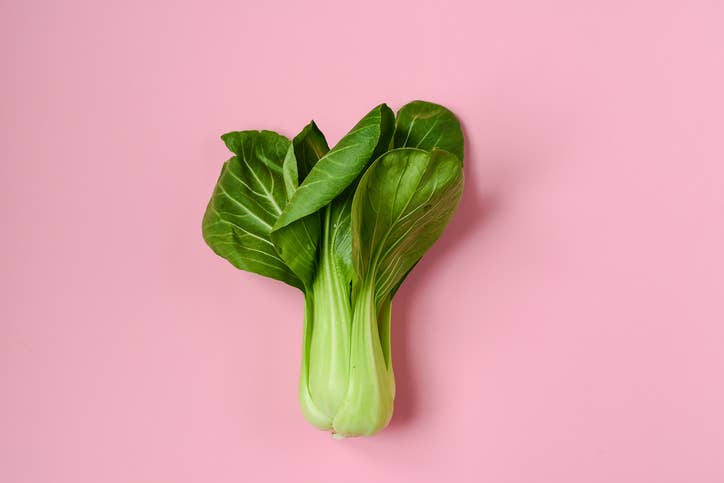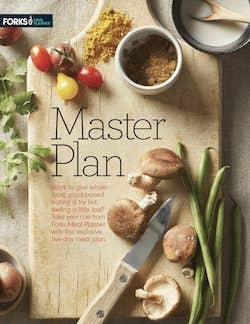By Brian Wendel,
Last Updated:Many people hear “vegan” or “plant-based” diet and images of restriction and yes, pain, surface in their mind. How can anyone maintain such a restrictive lifestyle? No one can live on spinach alone!
In reality, eating a whole-food vegan diet isn’t foreign or strange; you will enjoy healthier versions of the foods you already love. Hearty dishes like lasagna, stews, and pizza—while prepared differently—are all on the menu.
I’ve followed this lifestyle for more than 15 years and can report that it has brought me incredible joy. The happiness I feel by eating right for my body, and in a way that is humane and less harsh on our natural resources, cannot be adequately measured in words.
I’m fortunate to have learned a lot over the years and am pleased to share some tips that I’m confident will help you stay on a healthy vegan path for a lifetime. If you are just starting out, check out our Vegan Diet for Beginners Guide.
1. Make starches and fruit the basis of your diet.
Many people immediately think of broccoli or kale when they hear the words “plant-based diet.” Although it’s beneficial to eat leafy vegetables in abundance, they simply do not have enough calories to fuel you and satisfy your appetite (a full pound of kale, for example, has only 223 calories). To succeed on this diet, it’s important that you eat enough healthy calories. This means making starches or fruit the center of your meal plate.
When making a savory meal, use foods like potatoes, sweet potatoes, whole grains, and legumes to create meals you really enjoy. Think dishes like bean enchiladas, pesto pasta, and chickpea pot pie. Contrary to urban legend, we are not talking about a diet of bok choy here—thank goodness!
2. Eat the foods you enjoy and don’t worry about individual nutrients.
Many people view food as a nutritional balancing act, and they go through their day trying to make sure to get just the right amount of the countless number of nutrients out there. People are carefully calibrating their protein, carbs, lycopene, or whatever nutrient is in the news that week.
On a plant-based diet, such precision isn’t necessary and the worry that comes with it can hinder your ability to stay the course. Simply choose your foods from the categories of whole fruits, vegetables, tubers, whole grains, and legumes; eat a variety across these categories over time, and eat until comfortably satiated. The most important key to success is to find or make the greatest meals you can. Nothing will help you stay on the plan more than a killer sweet-potato lasagna.
3. Don’t sweat the small stuff.
Focus on the big changes like switching from meat, milk, and eggs to whole-plant foods. Such changes dramatically improve the nutritional composition of the foods you are eating, so this is where you will find the most noticeable and measurable improvements in your health.
Worrying about eating only fresh, local, or organic foods is folly when you were eating fast food and Ring Dings a few weeks ago. Since choosing whole plants is the most important thing you can do for both your health and the world around us, be sure that priority is well taken care of before seeking loftier goals.
4. Check online and call ahead when eating out.
If you’re looking for a place to go, a small amount of research goes a long way—and can usually be done in just a few minutes. For example, if you’re thinking about Italian food, search online to find restaurants and see what others are saying about them. Look around, read a few reviews and boom, you’ve found a place with multiple pasta dishes, some minestrone, and pasta e fagioli. Call and make sure the veggie options you like are vegan and can be done with no- or minimal oil—and you’re on your way!
If your friends or coworkers invite you out and they already have a place in mind, check out the menu online and gauge how veg-friendly it is. If veg doesn’t seem a priority, place a call ahead and let them know you are coming; the chef is almost always happy to accommodate. Let him or her know you like hearty foods like potatoes, pasta, beans and so on—this is your insurance against having your main meal be the dreaded plate of steamed asparagus.
5. Find your plant-based tribe.
Surround yourself with like-minded people who share your joy of living the plant-based life. Join groups on social media, attend local meetups, and, most importantly, make some real-life friends that share your enthusiasm.
Having people in your life that share your values will remind you of why you do what you do. It’s also a great way to exchange ideas from recipes and restaurants to handling family and social situations.
6. When vacationing abroad, travel to places where it’s easy to get great plant-based food.
The good news about traveling on a plant-based diet is the world is filled with places where animal-free foods are abundant. Regardless of what part of the world you are traveling to, you are likely to find some kind of plant-based fare that’s ingrained in the culture and will suit your needs.
If food is as important to you as it is for me, consider what your food options will be like when making your travel plans. It’s a good idea to research online to get a feel for the local vegan fare. Prior to staying in hotels or working with a guide, let your contacts know your dietary needs. You will be surprised how much they are willing to advise and help you navigate the waters.
When traveling to a place where you don’t speak the native tongue, ask someone who speaks both languages fluently to help you make a “cheat sheet” of all your dietary needs. When you’re out and about, just hand the small sheet of paper to your host or server—and all of your lives just became easier.
Below is the "cheat sheet" I use when I travel to Thailand. It translates to: I am a vegan. I do not eat any meat. I do not eat any food that has eggs, fish sauce, oyster sauce, or milk as a part of the ingredients. I can eat garlic.
(RELATED: Tips for staying plant-strong on the road)
7. Be a patient advocate: Share your advice and enthusiasm when the time is right.
Our love of this lifestyle makes us want to shout about it from the rooftops. We want to share the message with everyone and have each person we meet adopt the lifestyle right away. And of course being a positive influence to the people around us is a noble goal!
However, as counterintuitive as it might seem, resist the urge to talk a lot about your lifestyle when meeting new people. Untimely discussions can lead to frustration and agitation, which can hurt potential friendships. Since food and health are sensitive topics, it’s important to first establish commonality. For example, if you share a love of sports or hobbies, it will establish the camaraderie needed to have more open and trusting conversations later on.
When is the time right? When someone begins asking questions and does so out of genuine curiosity. With much goodwill built up from the things you have in common, you’ll be on your way to making a difference in each other’s lives. The more positive relationships you can associate with your plant-based way of life, the more likely you will succeed in the long run.
I hope you found these tips helpful, and I wish you the best in your plant-based journey!
This article was originally published on July 20, 2016, and has been updated.

Related News
Try Our Top-RatedMeal Planner Free

Forks Meal Planner takes the hard work out of making nutritious meals the whole family will enjoy.
SAVE $200 ON OUR ULTIMATE COURSE

Join our best-selling course at a new lower price!




